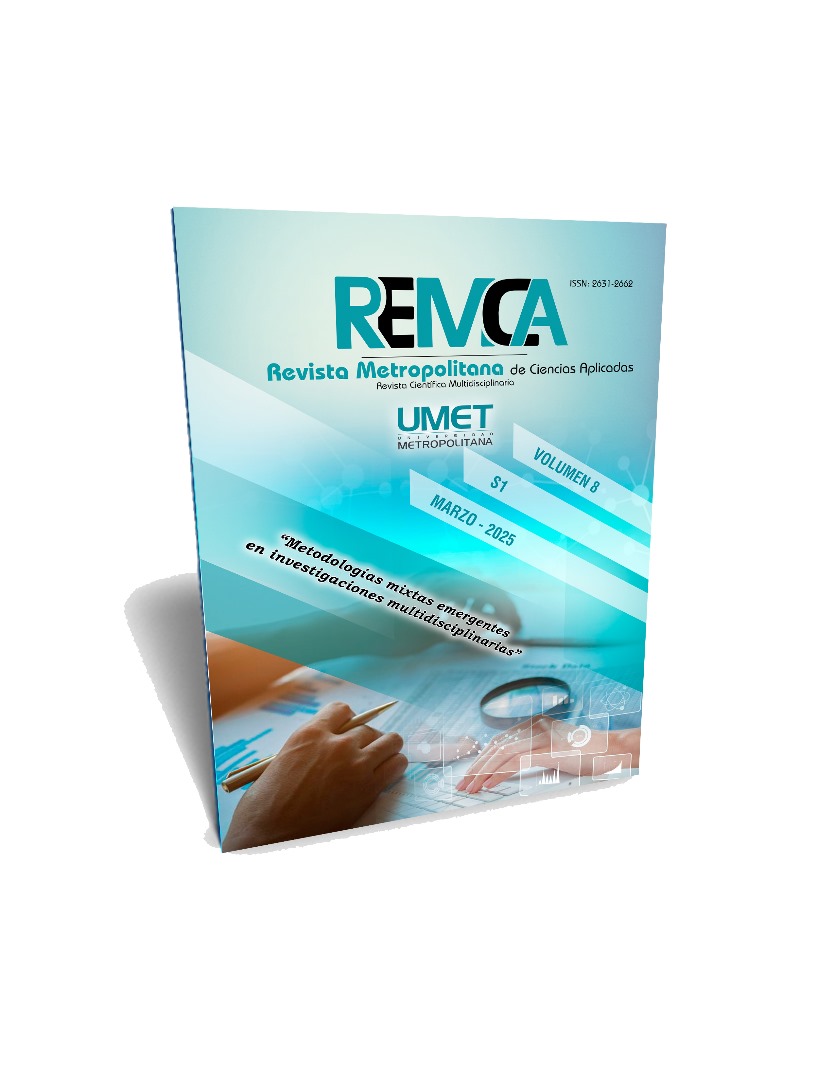Artificial intelligence and sustainability: innovation for sustainable development and energy efficiency
DOI:
https://doi.org/10.62452/whgwy586Keywords:
Intelligence, sustainability, renewable energies, energy efficiency, technological innovationAbstract
The convergence between Artificial Intelligence (AI) and sustainable technologies is redefining the efficiency of energy and environmental systems. This study examines the impact of AI on renewable energy optimization, waste management and carbon footprint reduction. Using a mixed research approach, combining systematic literature review, quantitative data analysis and predictive modeling, key trends and emerging opportunities are identified. The findings confirm that AI improves operational efficiency by up to 35%, reduces resource waste by 30%, and contributes to the smart management of power grids and recycling systems. Challenges related to the high energy consumption of AI models and the need for adequate infrastructure for large-scale deployment are also discussed. It is shown that the use of machine learning algorithms can increase the operational efficiency of energy systems and improve waste management through computer vision techniques. Statistical analysis has also revealed a significant reduction in resource waste through the application of AI in the prediction and optimization of energy consumption.
Downloads
References
Alvarado Bastidas, E. A. (2024). Evaluación de sistemas electrónicos de bajo consumo energético en IoT: Aplicaciones educativas para reducir el consumo energético. Sage Sphere International Journal, 1(2). https://sagespherejournal.com/index.php/SSIJ/article/view/6
Buitrón-Barros, H. O. (2024). Integración de inteligencia artificial en redes eléctricas inteligentes y su potencial transformador. Horizon Nexus Journal, 2(2), 29-42. https://doi.org/10.70881/hnj/v2/n2/37
Castillo, D., & Aguas Bucheli, L. F. (2021). Uso de la visión artificial para la clasificación de residuos sólidos. Nexos científicos, 5(2), 48–57. https://nexoscientificos.vidanueva.edu.ec/index.php/ojs/article/view/61
Concha Vargas, G. .(2024). Análisis preliminar del impacto ambiental de la Inteligencia Artificial. Revista Avante De Ciencias Sociales Y Humanidades, 4(1), 49–57. https://doi.org/10.5281/zenodo.14028841
Marasco, D., Bufanio , R. D., Monte, G., Scarone, N., Agnello , A., Zappa, A., Amadio, M., & Wild Cañon, C. (2023). Propuesta de electrónica de potencia para la protección y optimización del desempeño de una turbina eólica de baja potencia conectada a la red eléctrica de baja tensión. Ingenio Tecnológico, 5. https://ingenio.frlp.utn.edu.ar/index.php/ingenio/article/view/83
Montúfar Chiriboga , G. J. (2025). El estado del arte de la integración de sistemas inteligentes en la edificación y su impacto en la eficiencia energética. REICIT, 4(2), 169–182. https://doi.org/10.48204/reict.v4n2.6759
Mora Pin, G. S., Delgado Segovia, M. L., Pico Macias, J. J., & Vélez Sánchez, A. (2025). Modelo basado en Redes Neuronales para medir la huella de carbono en emprendimientos ecuatorianos. Serie Científica De La Universidad De Las Ciencias Informáticas, 18(1), 232-146. https://publicaciones.uci.cu/index.php/serie/article/view/1809
Salas, H., Quispe, H., Soto, J., & Jurado, V. (2023). Diseño de redes de distribución de abastecimiento de agua utilizando métodos racionales complejos e inteligencia artificial en Callqui Grande-Huancavelica. Revista Científica Ciencias Ingenieriles, 3(1), 12–26. https://doi.org/10.54943/ricci.v3i1.221
Sánchez Yáñez, J. M., & Márquez Benavides, L. (2024). Gestión de residuos sólidos y la inteligencia artificial en el contexto mexicano. Ciencia Nicolaita, (90). https://doi.org/10.35830/cn.vi90.722
Sies, H. B., Belousov, V., Chandel, N., Davies, M., Jones, D., Mann, D., Murphy, M., Yamamoto, M., & Winterbourn, C. (2022). Defining roles of specific reactive oxygen species (ROS) in cell biology and physiology . Nature reviews Molecular cell biology, 23(7), 499 - 515. https://pubmed.ncbi.nlm.nih.gov/35190722/
Downloads
Published
Issue
Section
License
Copyright (c) 2025 Byron Oviedo-Bayas, Cristian Zambrano-Vega, Eduardo Amable Samaniego-Mena, Ángel Torres-Quijije (Autor/a)

This work is licensed under a Creative Commons Attribution-NonCommercial-ShareAlike 4.0 International License.
Authors who publish in Revista Metropolitana de Ciencias Aplicadas (REMCA), agree to the following terms:
1. Copyright
Authors retain unrestricted copyright to their work. Authors grant the journal the right of first publication. To this end, they assign the journal non-exclusive exploitation rights (reproduction, distribution, public communication, and transformation). Authors may enter into additional agreements for the non-exclusive distribution of the version of the work published in the journal, provided that acknowledgment of its initial publication in this journal is given.
© The authors.
2. License
The articles are published in the journal under the Creative Commons Attribution-NonCommercial-ShareAlike 4.0 International License (CC BY-NC-SA 4.0). The terms can be found at: https://creativecommons.org/licenses/by-nc-sa/4.0/deed.en
This license allows:
- Sharing: Copying and redistributing the material in any medium or format.
- Adapting: Remixing, transforming, and building upon the material.
Under the following terms:
- Attribution: You must give appropriate credit, provide a link to the license, and indicate if any changes were made. You may do this in any reasonable manner, but not in any way that suggests the licensor endorses or sponsors your use.
- NonCommercial: You may not use the material for commercial purposes.
- ShareAlike: If you remix, transform, or build upon the material, you must distribute your creation under the same license as the original work.
There are no additional restrictions. You may not apply legal terms or technological measures that legally restrict others from doing anything the license permits.




